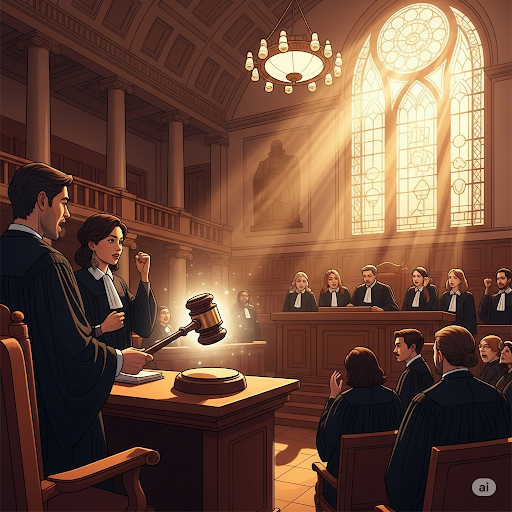Anthropic has achieved an important legal victory in a case against publishers, establishing legal frameworks for training artificial intelligence on literary works. The court recognized the legal use of legitimately purchased books for training AI models.

G. Ostrov
Anthropic, the developer of the popular AI assistant Claude, has won a landmark court case against a group of major publishing houses. The court's decision establishes an important precedent in the field of copyright and the use of literary works for training artificial intelligence models.
The Essence of the Legal Proceeding
Publishers accused Anthropic of copyright infringement, claiming that the company illegally used their books to train language models without obtaining appropriate licenses. The lawsuit was filed by a coalition of leading publishing houses, including major American and European companies.
The main disputed issue was defining the boundaries of fair use in the context of machine learning. Publishers insisted that any use of their content for AI training requires explicit permission and payment of licensing fees.
Court Decision and Its Reasoning
The court ruled that using legally purchased books for training AI models falls under the fair use doctrine. The key factor was that Anthropic used only those works that were legally bought or obtained through official channels.
The judge specifically emphasized the distinction between using legally acquired content and pirated material. The decision clearly states that training AI on illegally obtained works remains a copyright violation and may result in serious legal consequences.
Significance for the AI Industry
This decision has enormous significance for the entire artificial intelligence industry. It provides legal certainty for companies developing AI systems and establishes clear frameworks for using copyright-protected content.
Many experts believe that this precedent will accelerate the development of AI technologies, as companies can now more confidently invest in creating training datasets based on legally acquired materials.
Publishing Industry Reaction
Representatives of the publishing industry expressed disappointment with the court's decision, announcing plans to file an appeal. They argue that the decision undermines the economic interests of authors and publishers, depriving them of potential revenue from licensing content for AI.
Some publishing houses have already announced intentions to create special licensing programs for AI companies, offering official channels for accessing their content on commercial terms.
Anthropic's Position
Anthropic representatives welcomed the court's decision, emphasizing their commitment to ethical development of AI technologies. The company stated that it has always tried to respect copyrights and use only legally available content for training its models.
In an official statement, Anthropic confirmed its readiness to continue cooperation with publishers and authors to create mutually beneficial solutions in content licensing.
Implications for Other AI Companies
The court's decision creates an important precedent for other companies working in the field of artificial intelligence. OpenAI, Google, Microsoft, and other major industry players closely monitored the proceedings, as its outcome directly affects their activities.
Experts expect that the decision may stimulate the creation of industry standards for using protected content in AI training, as well as the development of specialized platforms for content licensing.
More detailed information about Anthropic's activities can be found on the company's official website.
If you encounter any problems, contact us, we'll help quickly and efficiently!




